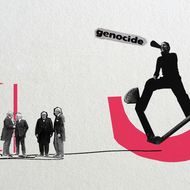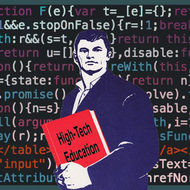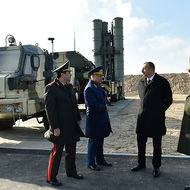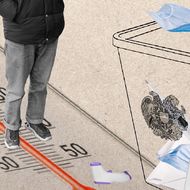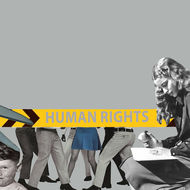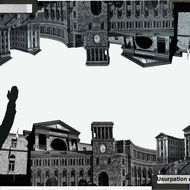Search articles
Search results for
How the Crisis Affected Armenia's Telecommunications Sector
By Suren Parsyan
Compared to other markets in the Armenian economy, the telecommunications and communications market is highly competitive. Economist Suren Parsyan breaks it down.
How the Theme of Genocide Became an Instrument of Western Diplomacy
By Gaïdz Minassian
The recognition of the Armenian Genocide by the U.S. stemmed from its own interests. Other allied powers are considering following suit. Will Armenia be able to take advantage of this shift in global geopolitics?
How to Avoid a Deadlock or the Use of Force During the Delimitation of the Armenian-Azerbaijani Border?
By Sossi Tatikyan
In light of Azerbaijan’s aggressive military operations, the international community’s response and the formation of a format for the delimitation and demarcation process, Sossi Tatikyan offers comprehensive suggestions on potential formats and phases.
How to Respect, Not Waste, Food
By Kushane Chobanyan
Food waste is a serious global issue. Roughly one third of the food produced globally gets lost or wasted. In fact, most of it ends up in a landfill. What is Armenia doing to tackle this issue?
How to Transform High-Tech Education in Armenia
By Artashes Vardanyan
Education has the immense power to impact industries and the economy. Artashes Vardanyan writes about the need to transform the educational system to meet the needs of one particularly promising sector of Armenia's economy, the High-Tech industry.
How to Work with Russia?
By Areg Galstyan
Why did Armenia not take more proactive measures when it knew that Moscow was actively developing its military-political dialogue with Baku? In this analysis, Areg Galstyan looks at the complex relationships in the South Caucasus and policies that Russia implements with both Armenia and Azerbaijan.
How Will Armenians With COVID-19 Vote on Election Day?
By Harout Manougian
Armenia has about 15,000 active COVID-19 cases. Even if that number decreases by June 20, there will most likely be thousands of eligible voters who are positive. With no mail-in voting and no opportunity to vote in advance, election administrators face a constitutional conundrum.
Human Rights-Based Approach: Discussions with Decision Makers
By Anahit Simonyan
Is Armenia moving towards the implementation of a human rights-based state and state policy? To find out, Anahit Simonyan interviews Minister of Labor and Social Affairs Zaruhi Batoyan, Minister of Health, Arsen Torosyan, and Deputy Minister of Education, Arevik Anapiosyan.
Human Rights-Based Approach: Discussions with Decision Makers
By Anahit Simonyan
In the second of a two-part series on the need for a human rights-based approach to policymaking, human rights activist and researcher Anahit Simonyan talks to a number of ministers and a deputy minister about field specific issues such as poverty, discrimination, health protection and more.
Human Rights-Based Approaches in Practice: The Armenian Context
By Anahit Simonyan
Upholding the dignity and rights of each individual is the main function of any democratic state. The change in power as a result of the revolution and the assumption of the office of prime minister by Nikol Pashinyan with the agreement and affirmation of wide segments of society put into motion the formation of a new social contract.



